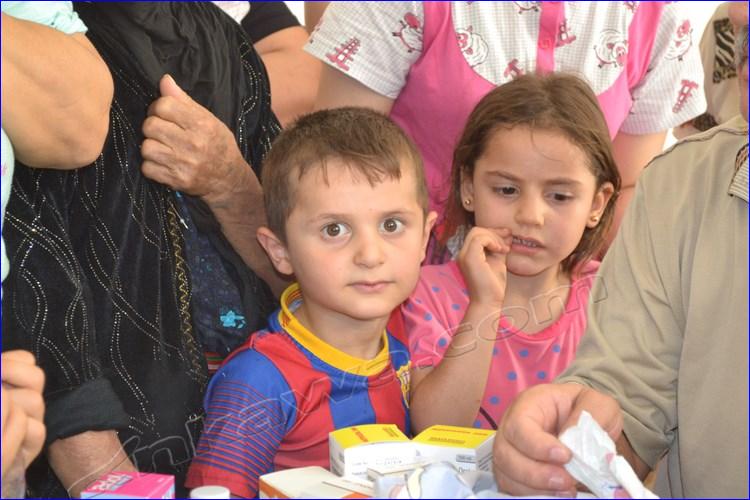


Another term which has dramatically altered its meaning is the word "discriminate". It used to mean simply to "differentiate": to distinguish good from bad and right from wrong in order to make wise choices. However with the rise of post-modernist Western society which is uncomfortable about judging anything to be good or bad, preferring to lazily judge things as simply different, the word "discriminate" has assumed a negative meaning. It is wrong to discriminate between religions, between cultures, between sexualities and so forth.
This new-found reluctance to attribute judgments of good and bad has left the Western world at a decided disadvantage in facing up to the challenges of today. There is no clearer example than in the issue of decision-making about the current refugee crisis in Europe, which is affecting the entire Western world.
As hundreds of thousands of refugees pour out of Syria and Iraq, and are joined in their throngs by similar numbers of Pakistanis, Afghans, Moroccans, Ethiopians, and a host of other nationalities, post-modern Western ideologues are at pains to rebuke governing authorities who may suggest a process of selection based on religion. That would be discrimination -- so the thinking goes -- and discrimination is a bad thing.
So as European governments, and those of other Western countries such as the United States, Canada, Australia, and New Zealand, make decisions about how many refugees to accept and which refugees to accept, they are scolded by post-modern ideologues if they dare to suggest it should be on the basis of religion. President Obama, the leader of the world's most powerful nation, has asserted that it is "shameful" to favor Christians in refugee selections.
Of course, discrimination happens all the time in ways that are quite acceptable to those who are very quick to criticize discrimination. President Obama and his administration will select 10,000 refugees from the mass of candidates according to certain non-religious criteria. That is discrimination. Angela Merkel's Germany, which was very quick to claim the moral high ground by accepting virtually anybody when the refugee crisis began, is now becoming more circumspect by indicating that it too will engage in non-religious selection. That too is discrimination. Britain has announced that it will accept 20,000 refugees; Canada under its new liberal ideologue Prime Minister Justin Trudeau will accept 25,000 refugees. They will all be selected according to certain non-religious criteria. Discrimination will take place in all these cases.
And indeed such discrimination should take place. It would not be right if immigration officials wore blindfolds and selected people at random for their limited immigration programs. On the contrary, it makes perfect sense for governments to have selection criteria, discriminating in favor of certain people over others as they fill their immigration quotas.
However, where such processes of selection and discrimination should take place is in terms of religious identity in dealing with the current refugee crisis. This is something which is clearly understood by the Hungarian government but, it would appear, by few others. The simple fact is that if European nations accept large numbers of Muslim refugees, they will be making a mistake on several grounds. First they will not be favoring those who have suffered the most, who are undoubtedly religious minorities: Christians, Yazidis and other non-Muslim groups. Second they will not be doing a service to future generations of Europeans. On the contrary, they will be setting up societies which will fracture and fragment in generations to come and which will be in conflict given the entrenched discomfort at best and antagonism at worst between European and Muslim communities.
The two objections just articulated refer to both short-term and long-term policy. Religious minorities are suffering today and so they should be favored in today's immigration quotas. Accepting large numbers of Muslims into European nations will set up problems for the future, based on the experience of the past. Since the year 2000, in France alone there have been 13 terrorist incidents carried out by radical Muslims driven by religious motives, resulting in 160 deaths and 440 injuries; in the same period there has not been a single terrorist incident in France carried out by Christians driven by religious motives.
So we need to reclaim the word "discrimination", because wise choices depend on selection, differentiation, and discrimination. Today's political leaders and their immigration officials should be asking the following question: which refugee groups will be most easily integrated, resulting in enhanced social harmony? The answer to that question is certainly not large numbers of Muslim refugees. The answer is clearly religious minorities especially Christians: Assyrians, Armenians, Copts and so forth.
Today's Western political leadership owes it to future generations to make the right choices; in other words to discriminate in the best possible way.
Guest Editorial Policy

or register to post a comment.